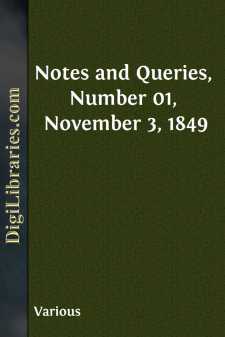Categories
- Antiques & Collectibles 13
- Architecture 36
- Art 48
- Bibles 22
- Biography & Autobiography 816
- Body, Mind & Spirit 145
- Business & Economics 28
- Children's Books 17
- Children's Fiction 14
- Computers 4
- Cooking 94
- Crafts & Hobbies 4
- Drama 346
- Education 58
- Family & Relationships 59
- Fiction 11834
- Foreign Language Study 3
- Games 19
- Gardening 17
- Health & Fitness 34
- History 1378
- House & Home 1
- Humor 147
- Juvenile Fiction 1873
- Juvenile Nonfiction 202
- Language Arts & Disciplines 89
- Law 16
- Literary Collections 686
- Literary Criticism 179
- Mathematics 13
- Medical 41
- Music 40
- Nature 179
- Non-Classifiable 1768
- Performing Arts 7
- Periodicals 1453
- Philosophy 66
- Photography 2
- Poetry 897
- Political Science 203
- Psychology 45
- Reference 154
- Religion 516
- Science 126
- Self-Help 85
- Social Science 82
- Sports & Recreation 34
- Study Aids 3
- Technology & Engineering 59
- Transportation 23
- Travel 463
- True Crime 29
Our website is made possible by displaying online advertisements to our visitors.
Please consider supporting us by disabling your ad blocker.
Notes and Queries, Number 01, November 3, 1849
by: Various
Categories:
Description:
Excerpt
The nature and design of the present work have been so fully stated in the Prospectus, and are indeed so far explained by its very Title, that it is unnecessary to occupy any great portion of its first number with details on the subject. We are under no temptation to fill its columns with an account of what we hope future numbers will be. Indeed, we would rather give a specimen than a description; and only regret that, from the wide range of subjects which it is intended to embrace, and the correspondence and contributions of various kinds which we are led to expect, even this can only be done gradually. A few words of introduction and explanation may, however, be allowed; and indeed, ought to be prefixed, that we may be understood by those readers who have not seen our Prospectus.
"WHEN FOUND, MAKE A NOTE OF," is a most admirable rule; and if the excellent Captain had never uttered another word, he might have passed for a profound philosopher. It is a rule which should shine in gilt letters on the gingerbread of youth, and the spectacle-case of age. Every man who reads with any view beyond mere pastime, knows the value of it. Every one, more or less, acts upon it. Every one regrets and suffers who neglects it. There is some trouble in it, to be sure; but in what good thing is there not? and what trouble does it save! Nay, what mischief! Half the lies that are current in the world owe their origin to a misplaced confidence in memory, rather than to intentional falsehood. We have never known more than one man who could deliberately and conscientiously say that his memory had never deceived him; and he (when he saw that he had excited the surprise of his hearers, especially those who knew how many years he had spent in the management of important commercial affairs) used to add,—because he had never trusted it; but had uniformly written down what he was anxious to remember.
But, on the other hand, it cannot be denied that reading and writing men, of moderate industry, who act on this rule for any considerable length of time, will accumulate a good deal of matter in various forms, shapes, and sizes—some more, some less legible and intelligible—some unposted in old pocket books—some on whole or half sheets, or mere scraps of paper, and backs of letters—some lost sight of and forgotten, stuffing out old portfolios, or getting smoky edges in bundles tied up with faded tape. There are, we are quite sure, countless boxes and drawers, and pigeon-holes of such things, which want looking over, and would well repay the trouble.
Nay, we are sure that the proprietors would find themselves much benefited even if we were to do nothing more than to induce them to look over their own collections. How much good might we have done (as well as got, for we do not pretend to speak quite disinterestedly), if we had had the looking over and methodizing of the chaos in which Mr. Oldbuck found himself just at the moment, so agonizing to an author, when he knows that the patience of his victim is oozing away, and fears it will be quite gone before he can lay his hand on the charm which is to fix him a hopeless listener:—"So saying, the Antiquary opened a drawer, and began rummaging among a quantity of miscellaneous papers ancient and modern. But it was the misfortune of this learned gentleman, as it may be that of many learned and unlearned, that he frequently experienced on such occasions, what Harlequin calls "l'embarras des richesses"—in other words, the abundance of his collection often prevented him from finding the article he sought for." We need not add that this unsuccessful search for Professor Mac Cribb's epistle, and the scroll of the Antiquary's answer, was the unfortunate turning-point on which the very existence of the documents depended, and that from that day to this nobody has seen them, or known where to look for them....












